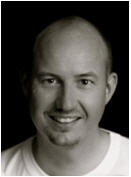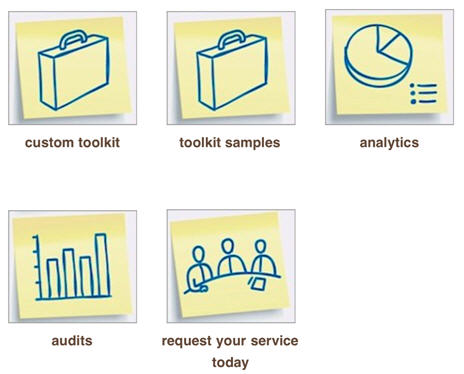Interview with Markus Hilbert, Au.D., Founder of Ear Works, Inc.
Share:
Topic: Growing Your Business in a Rapidly Changing Industry

Markus Hilbert, Au.D.
CAROLYN SMAKA: Today I am talking with Dr. Markus Hilbert with Ear Works, Inc about building up your practice. Markus, can you start by telling me about background?
MARKUS HILBERT: Sure. I received my Au.D. from Salus University and have been in private practice for 15 years. I had my own practice, which I acquired, quadrupled its value over an 8 year period, and then sold it to another, larger company. I have a passion for growing a business, including knowing the ins and outs of how to grow it as well as how and when to exit.
"My passion now is helping clinicians in private practice who want to grow and prosper but don't have the same tools as larger companies with executive resources"My passion now is helping clinicians in private practice who want to grow and prosper but don't have the same tools as larger companies with executive resources. By allowing smaller firms to access these resources through Ear Works, it is my privilege to help these clinics flourish.

SMAKA: Considering most of us that have been in the field for awhile never received formal training in practice management, I would think there is a great need for your services. Do you naturally have a knack for business?
HILBERT: You are right;unfortunately, the average audiologist is not really trained in business practice. For me, I attribute my expertise both to hard work and to training outside of my clinical training, including courses in business and personal coaching. However, I think that if given the right tool set and the right environment, anybody could do the same if not more.
SMAKA: Can you give us a general overview of Ear Works Inc?
HILBERT: Sure. Ear Works started in 2005 in Canada as a private personal solution to clinic management. It really stemmed from the fact that I couldn't find a software that could provide all of the things that I wanted;so, I had my own built and realized that other clinics could benefit from it too. We went to market in 2005 with version 2, and now we're at version 4.1. That was the core of how Ear Works began. Since then, we realized that not everyone needed every feature of this premium product, so we broke it down into smaller options to fit the needs of various practices. We now have four versions that can be purchased, including smaller bundles designed for the smaller clinic. This really opened up Ear Works as a software for a clinic of any size from small to large.

We then realized that one of the most popular tools in the program is a product selection tool that includes all of the hearing aids from all of the manufacturers. Ear Works users are able to put their prices in this tool so it can serve as a price list, but it is also a great way to easily compare hearing aids based on technical features. For instance, a clinician can compare features like feedback management, noise reduction, types of directionality, and so forth between aids of various manufacturers. This has been extremely popular, so we extracted it from the software and made its own product out of it that we call Aid Finder. Aid Finder is in beta 1 right now and will be released as beta 2 shortly. In addition to use in the office for counseling and education, it also allows clinics to customize it and use it online. Clinics can put a database of the hearing aid products that they work with on their website, without prices showing while including their consulting/counseling information rationale or flow, to allow potential new clients to that clinic to educate themselves about hearing aids, hearing loss before they come into the clinic, so that the face-to-face counseling can be higher-level and more productive. In this way, Aid Finder opens up a new branch of online services that we provide.
"Aside from the software products, we also provide a range of consulting services like acquisition management, recession management, marketing, and several other business topics."Aside from the software products, we also provide a range of consulting services like acquisition management, recession management, marketing, and several other business topics. We host websites, write and implement business plans, handle project mnagement, provide outsourcing to our clients for any remotely manageable needs and provide analytics to assess and map out changes and handle change management. Overall, we do a lot of different things to help smaller practices grow.
SMAKA: Markus, let's talk about current industry trends and how Ear Works can help.
HILBERT: Well, there is a lot of talk about how the Web can be used to market to clients. Even though a lot of the senior population isn't yet online, their children, the sandwich generation, are along with the younger senior/boomer. There's a lot of research about hearing aids that is done online, but not a lot of information is available to the end user about technology specifics. So, one of the biggest trends is to market using the Internet to not only advertise your clinic and get traffic to your website, but also to educate the public. The more we do that, the more we stand up to our professional calling to serve and educate people who have hearing loss and their families.
Using the Internet for the purpose of education and enlightenment has a two-fold benefit. One, it gives us exposure and helps us promote ourselves;and two, it also serves the professional responsibility of education and providing information.
SMAKA: What does this mean for the small practice? How can practice owners harness the potential of the Web for their practice?
HILBERT: To answer that, let's look at look at how we use computer media, specifically e-mail, right now. Not a lot of our patients may have e-mail but most of our referral sources do. Setting up newsletters and doing the traditional marketing by mailers isn't necessarily the best choice to reach clients or referral sources. There's so much junk mail now that a lot of that is just lost;it's a spray and pray approach, and it doesn't always lead to results. In my opinion, e-mail and regular postcard mailers are nearing the end of their life cycle. The Internet gives us the opportunity to do so much more.
"In my opinion, e-mail and regular postcard mailers are nearing the end of their life cycle. The Internet gives us the opportunity to do so much more."

Our websites can have sections for professionals, our referral sources, such as primary physicians and ENTs. We can also have interactive forms, blogs, and all of our newsletter content available there. If we make it interesting enough, people will actually go and visit it, especially if we offer rss feeds. We always have to remember what's in it for them;whereas the traditional website is about us, we need to make it about the people who we want to be our audience.
That is the challenge for most clinics. When I look at a lot of clinic websites it's about what they offer, what products they have, what services they do, their hours. All of that is important, but we need to take a new angle and look at what's in it for the target that we're trying to reach, be it professionals or consumers. Then, we need to make it interactive, which is really the challenge. Finally, we need to place it optimally on the Web so that the site can be found on the Internet using Google and other free searches.
We definitely need to come of age in our industry and take advantage of some of these quite easy solutions that have great impact.
SMAKA: I never thought about it that way, but I am much more likely to visit websites regularly that are interactive rather than just the facts about the clinic, store, or service, which I may only visit once as a new client.
Earlier, you mentioned educating through a website. How do professionals do that?
HILBERT: Well, if a novice in hearing aids goes online and searches for hearing aids, he would probably find some online stores and some manufacturers' websites along with some educational sites. A lot of that information is inherently biased;so, the consumer is not really learning as much as they are reading marketing and promotional info. As professionals, it's up to us to provide unbiased real information that can be understood by the layman, and that's where the education component comes in.
We need to educate patients on features like directionality, feedback management, Bluetooth and explain why such components are important. We need to explain how to choose one product over another and in a context that is understandable by those with no background in hearing aids. I can go online and compare products in other industries. I can learn about their technical features, I can go into as much depth as I want;however, this is not the case for the hearing aid industry. We are limited in the depth of information on current websites, and that's really the clincher.
"With Aid Finder, I can educate the patient on hearing aids in an unbiased way, and I can describe my approach to rehab, from adaptation to how to select a product."This is why we introduced Aid Finder. As I mentioned, it enables consumers to visit your clinic's website and look at the details of various hearing aids offered there. With Aid Finder, a clinic can narrow the information down to just the manufacturers that they use and educate consumers not only about product, but also about their audiologic rehab approach. Currently, when patients comes in, clinicians have to start from scratch, possibly even unteaching patients some of the myths that they may have picked up in their own research. With Aid Finder, I can educate the patient on hearing aids in an unbiased way, and I can describe my approach to rehab, from adaptation to how to select a product, etc.

Providing this information on our website sets us apart. It tells a patient what really is in it for them, what's the difference that we provide. Web promotions should be a sales tool to tell people why to come to us. It shouldn't just be our location and hours or how friendly we are;these points are moot - everyone is nice and a good place to get hearing aids, I hope! It should describe our professional service: how we counsel, how we support the product, how we support the patient. All those things should be part of the product selection;otherwise, we risk becoming sales people for a product. If we couple our audiologic rehab approach to the sales pitch, if you will, then we have educated effectively.
SMAKA: It sounds like the Aid Finder is rather customizable.
HILBERT: Yes, the Aid Finder is customizable. You can customize it based on the product that you dispense, your personal flow of counseling, and the look you want for your website. In addition, it's integrated into your website so people don't have to go to a third party website to learn about you and your products, the don't leave your site.
SMAKA: Is Aid Finder updated real time to reflect new product releases?
HILBERT: It's constantly up to date, and again, it doesn't show cost, it doesn't show dollars and figures, it shows a range. An entry level product might have one dollar sign and a premium might have five dollar signs;there's a range so that people will know they will spend more for a certain product but they don't know how much.
Another facet of the Aid Finder is that you can become well versed in technology that you are not fitting, so that you can promote the products you are fitting more intelligently. For example, if you only fit products from three manufacturers, you can compare these to the products of other manufacturers, or those your competition may be fitting, etc.
SMAKA: This sounds so much easier than having countless reference manuals, often outdated, around the office.
HILBERT: Right. The beauty of it is that with Aid Finder a patient can actually request a quote from you for a specific product. The patient then comes in to your office already understanding how you counsel, what information you want them to have, and what product features or even what product they want so that the whole counseling and sales process is much smoother.
SMAKA: Great. In thinking about the Web, Markus, should we be social networking yet with our customers or is the senior market not there yet?
HILBERT: I think social networking has an important role in our industry;however, I don't think it's quite ready yet. I think that it's something we should be seriously looking at, but a lot of the older people using the Internet are using it for learning and reading and not socializing. When you look at stats of users of Facebook, Linked In, and sites like this, they don't really include most of the patients that we see. Also, I don't think we can jump from a static Web approach straight to social networking. There are so many steps in between and the evolution is going to be much more important as we mature in our industry, but I think that's a way down the road.
SMAKA: If I'm a small business and I'm interested in some of the things that I've heard you talk about that Ear Works could offer me, how do I take the next step?
HILBERT: The best thing to do is visit our Website: www.earworksinc.com. It tells you exactly what we do and has live links to any and all areas we serve. Depending on what your needs are, whether you need software, consulting, analytics, audits, or whatever it might be, all of that is available there. You can just follow the links and there are forms you can complete to request specifically what you need so that our services can be customized to your particular needs. These services are not only customized to your needs but also affordable. There are no price surprises halfway through a project you hire us for. Its simple to engage us, easy to work with us, and productive results follow.

Examples of services and resources on Ear Works website
SMAKA: What are some of the top questions you get from new Ear Works customers?
"Customers ask us how they can grow and prosper in uncertain times. This hot topic is the subject of an AudiologyOnline presentation we are giving in June."HILBERT: The main question we hear revolves around the general sense of frustration with the industry. We're seeing about an eight percent growth rate in the industry and people aren't particularly happy about that, because a lot of that growth seems to be happening in the larger firms that have the marketing potential, funds, and resources to get in the face of the consumer. Customers ask us how they can grow and prosper in uncertain times. This hot topic is the subject of an AudiologyOnline presentation we are giving in June.
Clinicians also want to know how they can take what they have now and evolve it into a more prosperous operation that doesn't neglect the professional side. That's really the key thing;a lot of the larger practices are accounting firms that sell hearing aids and use well equipped technicians and professionals to do so. A lot of smaller practices want to avoid that, and being a personally-invested professional is what sets the smaller practice apart. It's a huge selling factor in a world of large corporations and big business.
SMAKA: You mentioned your own clinic quadrupled its growth. Can you give us other examples of clinics that benefited from Ear Works?
"Twenty percent of our clinics have grown simply by using our services."HILBERT: Absolutely. Twenty percent of our clinics have grown simply by using our services in the last 3 years. That's what gets me out of bed in the morning, seeing that we're making a difference in companies that were struggling or wanted to grow but didn't have the necessary tools to do so and are now expanding, opening new clinics, and seeing prosperity.
We're actually seeing a recent increase over the last six months in clinics opening up new practices and expanding, so we're offering 20 percent off to current Ear Works users to buy additional licenses to fulfill that growth.
It's really exciting that even in a recession our customers are opening new practices and we want to support that.
SMAKA: Speaking of the recession, do you see things turning around soon? How are you feeling about the outlook for the future for hearing care practices?
"There's really no room for pessimism or negativity when we're looking at expanding in a market that has so much potential."HILBERT: I feel very positive;I think that we have to look at the long term and not the short term. There will always be cycles in business, and it's during the downturns that we have to regroup and prepare for future business and future upswing. I see that coming, particularly for people who are prepared and who have a positive outlook themselves.
There's really no room for pessimism or negativity when we're looking at expanding in a market that has so much potential. Considering how many people should be wearing hearing aids, there is a relatively small population actually wearing devices, and we can expand that market, especially with the Boomer generation coming, top the so-called "not yet user". Given the technology and market size we have, we can definitely do better and Ear Works can help professionals leverage that opportunity to grow and prosper.
SMAKA: I love to end on a positive note. Markus, thank you for your time.
Markus Hilbert can be reached at markus@earworksinc.com. For more information on Ear Works, please visit www.earworksinc.com or the Ear Works web channel on Audiology Online.
